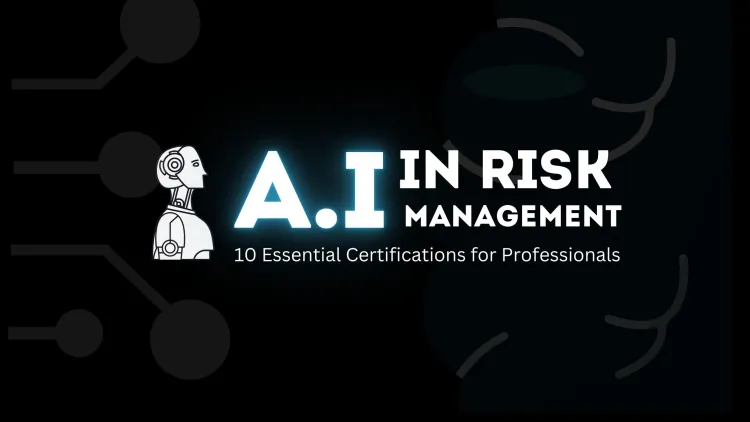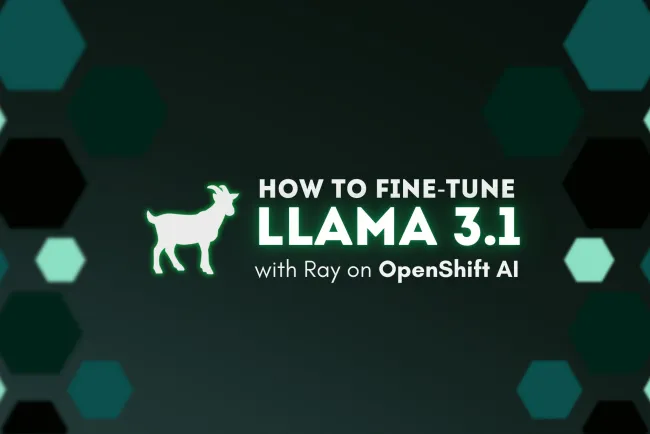AI and Ethical Hacking | 5 Must-Have Certifications for Cybersecurity Professionals
Artificial Intelligence (AI) is reshaping the field of ethical hacking by enhancing vulnerability detection, threat intelligence, and automation, making cybersecurity practices more efficient and effective. As the integration of AI into penetration testing and security operations grows, staying updated with relevant certifications becomes essential for professionals looking to stay competitive. Key certifications, such as Certified Ethical Hacker (CEH), Certified Information Systems Security Professional (CISSP), AWS Certified Machine Learning Specialty, and GIAC Penetration Tester (GPEN), equip ethical hackers with the necessary skills to leverage AI in detecting emerging threats and automating complex testing tasks. These certifications not only build a strong foundation in ethical hacking but also help professionals stay ahead in an ever-evolving cybersecurity landscape, positioning them as leaders in the field.

As cybersecurity threats continue to evolve in complexity, the integration of Artificial Intelligence (AI) into ethical hacking is reshaping how ethical hackers approach penetration testing and vulnerability assessments. AI-powered tools help ethical hackers identify vulnerabilities faster, detect sophisticated threats, and automate repetitive tasks, ultimately enabling more efficient security assessments. However, as AI technologies continue to grow, staying ahead of the curve requires a strong skill set backed by industry-recognized certifications. In this blog, we’ll explore how AI is transforming ethical hacking and highlight five essential certifications that will help you stay ahead in the field of cybersecurity.
The Growing Role of AI in Ethical Hacking
Ethical hacking involves identifying vulnerabilities in systems before malicious hackers can exploit them. Traditionally, ethical hackers or penetration testers used manual methods for system scanning, vulnerability testing, and identifying security loopholes. However, these approaches were often time-consuming and could not keep up with the ever-growing and increasingly sophisticated cyber threats.
AI has changed the landscape of ethical hacking by automating several tasks, improving accuracy, and enabling predictive analytics to identify vulnerabilities early. AI-powered tools and algorithms can now analyze large amounts of data in real-time, uncover patterns, and detect abnormal behaviors that might indicate a potential threat. From automating vulnerability scanning to creating advanced simulations of cyber-attacks, AI is becoming indispensable in cybersecurity.
How AI Enhances Ethical Hacking
1. Automated Vulnerability Scanning
AI-powered tools can automate the process of scanning networks, systems, and applications for vulnerabilities. These tools can quickly analyze large amounts of data, identify potential weak spots, and provide recommendations for fixing them. By automating repetitive tasks, AI helps ethical hackers focus on more complex aspects of penetration testing, improving overall efficiency.
2. Advanced Threat Detection
AI-driven systems are capable of learning from past attacks and adapting to new threat patterns. This means AI can identify sophisticated and previously unseen attacks, such as zero-day exploits or advanced persistent threats (APTs). AI systems analyze vast amounts of data in real-time to identify unusual patterns, flagging potential threats before they escalate into major security incidents.
3. Simulating Attacks with AI
AI can be used to simulate cyber-attacks, allowing ethical hackers to understand how threats may evolve and test their systems’ defenses. These simulations can include social engineering attacks like phishing and spear-phishing, helping organizations prepare for real-world attack scenarios and train employees to recognize and respond to such attacks.
4. Predictive Analytics for Risk Management
AI and machine learning can analyze historical data to predict future security risks. By identifying recurring patterns in past breaches or attempted attacks, AI helps ethical hackers forecast which areas are most likely to be targeted. This allows security teams to prioritize their testing efforts, addressing vulnerabilities before they can be exploited.
5. Enhancing Incident Response
AI-based systems can help ethical hackers develop more effective incident response plans by analyzing attack vectors and offering insights into how an attack might unfold. These tools can provide real-time recommendations on how to mitigate risks, enabling quicker and more accurate responses during a cyber crisis.
Top 5 Certifications to Stay Ahead in AI-Driven Ethical Hacking
As AI continues to make waves in ethical hacking, it’s essential for professionals in the field to adapt and enhance their skill set. Earning certifications that focus on both ethical hacking and AI will ensure you remain competitive in the ever-evolving cybersecurity landscape. Below are five certifications that can help you master AI-driven ethical hacking techniques:
1. Certified Ethical Hacker (CEH)
The Certified Ethical Hacker (CEH) certification, offered by EC-Council, is one of the most recognized certifications in the cybersecurity industry. This certification provides foundational knowledge in ethical hacking techniques, penetration testing, and vulnerability analysis. While it does not focus exclusively on AI, understanding the principles of ethical hacking will allow you to better integrate AI tools into your testing practices. As AI-powered tools become more common in penetration testing, CEH-certified professionals will be equipped to leverage these tools effectively.
2. Certified Penetration Testing Engineer (CPTE)
The Certified Penetration Testing Engineer (CPTE) certification is offered by EC-Council’s partner organizations and focuses on penetration testing strategies. The CPTE program provides in-depth knowledge of attack methodologies, including network and application layer attacks. Professionals with a CPTE certification can enhance their testing techniques with AI tools to automate and optimize penetration tests, ultimately making their work more efficient and accurate.
3. CompTIA Security+
While CompTIA Security+ doesn’t focus on AI, it is an excellent foundational certification for beginners in cybersecurity. It covers essential topics such as network security, cryptography, risk management, and threat detection. For those looking to integrate AI into their ethical hacking career, Security+ serves as the baseline for understanding fundamental cybersecurity concepts before advancing to more specialized AI-focused training and certifications.
4. GIAC Penetration Tester (GPEN)
The GIAC Penetration Tester (GPEN) certification, offered by the Global Information Assurance Certification (GIAC), is highly respected in the cybersecurity community. The certification covers penetration testing methodologies, exploitation techniques, and tools used to identify system vulnerabilities. AI-driven automation can be integrated into the testing process to streamline tasks such as vulnerability scanning and attack simulation. For those looking to specialize in AI-enhanced penetration testing, GPEN is an excellent choice.
5. AWS Certified Machine Learning – Specialty
The AWS Certified Machine Learning – Specialty certification is ideal for ethical hackers who want to incorporate machine learning and AI into their cybersecurity toolkit. This certification teaches how to design, implement, and deploy machine learning models using Amazon Web Services (AWS). With expertise in both machine learning and cybersecurity, ethical hackers can develop AI-powered tools to automate penetration testing, threat detection, and risk management. This certification is especially valuable for those looking to build or implement AI-based security tools.
The Future of AI in Ethical Hacking
As AI technology continues to evolve, its role in ethical hacking will only become more significant. The future of cybersecurity will see a greater reliance on AI and machine learning to detect, prevent, and respond to cyber threats. Ethical hackers will increasingly use AI tools to automate tedious tasks, analyze vast datasets, and simulate complex attack scenarios. The collaboration between human expertise and AI-powered tools will enable ethical hackers to stay ahead of cybercriminals in an ever-changing threat landscape.
Professionals with a solid understanding of both AI and ethical hacking will be in high demand. As more organizations adopt AI-driven security solutions, ethical hackers will play a critical role in designing, testing, and implementing these systems to ensure they are robust and effective.
Conclusion
The integration of AI into ethical hacking is revolutionizing how penetration testing and vulnerability assessment are carried out. From automating mundane tasks to providing predictive analytics and simulating advanced attacks, AI is making ethical hacking more efficient and accurate. To stay ahead in the cybersecurity field, obtaining certifications such as CEH, CPTE, GIAC Penetration Tester, and AWS Certified Machine Learning – Specialty will give ethical hackers the knowledge and skills necessary to leverage AI in their work. As AI continues to evolve, the synergy between AI and ethical hacking will become even more critical in the fight against cybercrime.
FAQ:
1. What is the role of AI in ethical hacking?
AI in ethical hacking enhances vulnerability detection, automates tasks, and provides deeper insights into threat intelligence, making penetration testing more efficient and accurate.
2. How does machine learning improve ethical hacking techniques?
Machine learning helps automate the detection of vulnerabilities, improves threat analysis, and enables predictive analytics, allowing ethical hackers to identify threats faster and more accurately.
3. What are the top certifications for ethical hackers interested in AI?
Key certifications include Certified Ethical Hacker (CEH), Certified Information Systems Security Professional (CISSP), AWS Certified Machine Learning – Specialty, and GIAC Penetration Tester (GPEN).
4. Do I need prior experience in AI to pursue certifications in ethical hacking?
While prior AI knowledge is beneficial, foundational cybersecurity certifications like CEH or CISSP are often the first step. You can build AI skills as you advance.
5. How can AI help ethical hackers simulate social engineering attacks?
AI, through Natural Language Processing (NLP), can simulate realistic phishing emails and fake websites, improving social engineering training and helping businesses better prepare for such threats.
6. What is the importance of predictive analytics in ethical hacking?
Predictive analytics powered by AI can forecast potential security risks by analyzing historical data, allowing ethical hackers to prioritize vulnerabilities and improve defenses before attacks occur.
7. How does AI help automate vulnerability detection in penetration testing?
AI uses algorithms to scan large datasets and log files, identifying patterns and anomalies that could indicate vulnerabilities, thus streamlining the testing process and reducing human error.
8. What certifications are most recognized in the field of ethical hacking?
Some of the most recognized certifications are Certified Ethical Hacker (CEH), Certified Information Systems Security Professional (CISSP), and GIAC Penetration Tester (GPEN).
9. Can AI replace human ethical hackers?
While AI can automate repetitive tasks and improve efficiency, human ethical hackers are still essential for strategic decision-making, creativity, and addressing complex, emerging threats.
10. How do I start a career in ethical hacking with a focus on AI?
Start by obtaining foundational cybersecurity certifications like CEH or CompTIA Security+, then pursue specialized certifications in machine learning and AI, such as AWS Certified Machine Learning – Specialty.












![Top 10 Ethical Hackers in the World [2025]](https://www.webasha.com/blog/uploads/images/202408/image_100x75_66c2f983c207b.webp)

![[2025] Top 100+ VAPT Interview Questions and Answers](https://www.webasha.com/blog/uploads/images/image_100x75_6512b1e4b64f7.jpg)









